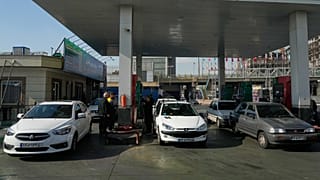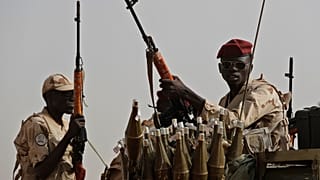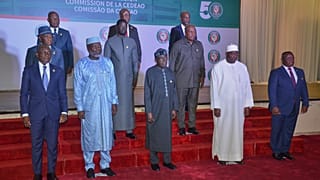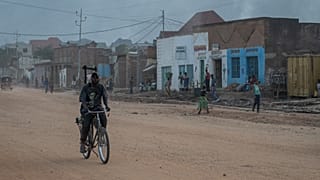Qatar
The Qatari capital, Doha, is hosting the world’s biggest oil producers for a meeting aimed at reaching an agreement to freeze production. The freeze is expected to help boost the price of crude.
Representatives from 15 countries belonging to the Organisation of Petroleum Exporting Countries (OPEC) and as well as other non-OPEC member states are attending Sunday’s meeting.
Oil producers' meeting in Qatar weigh temporary output cap #OPEC https://t.co/T1omKvxK40 pic.twitter.com/EbqRMXimgo
— AJE News (@AJENews) April 17, 2016
Iran which has ramped up its production after a recent lifting of western sanctions, has however stayed away from the talks.
According to Al Jazeera, Iranian authorities are not prepared to accept proposals to cap the country’s production until it recovered a similar market share to that which it held before the sanctions were imposed.
A major anticipated outcome of the meeting is an agreement that the average daily production of crude oil in the coming months will not exceed levels recorded in January.
The agreement was negotiated in February by Saudi Arabia, Russia, Qatar and Venezuela.
It is expected to reassure the markets that a recent recovery in oil prices can be sustained.
According to a draft copy of the agreement seen by Reuters, the cap would last till October 1 this year.
Although a final agreement is yet to be reached on the draft, Kuwait’s acting Oil Minister, Anas Khalid al-Saleh, told reporters he was confident a cap would be agreed.
Analysts are however divided on the outcome of the OPEC meeting, which could cause prices to rise further or fall.
There are also doubts over the impact any freeze on production would have on individual OPEC members.
Countries such as Ecuador and Venezuela have been hardest hit by the slump in prices. This has caused the Venezuelan economy to shrink by 10 percent this year as the country faces its worst recession since the 1940s.
Larger OPEC producers such as Saudi Arabia, however, insist on keeping production levels high, because they do not want to lose customers to non-OPEC producers like the United States.
OPEC ahead of Sunday’s meeting, revised downward its growth forecast for world demand in 2016.
The fall in crude prices since June 2014 was caused by oversupply, following a sharp increase in production from unconventional producers like the USA, and the refusal of OPEC to cut production in November 2014.













01:02
DRC and M23 sign framework peace deal to end fighting in eastern Congo
Go to video
Nigerian billionaire plans expansion of Africa's biggest oil refinery
01:03
Hamas denies receiving new Gaza ceasefire proposal ahead of Trump-Netanyahu meeting
01:25
Taliban free British couple after seven months in detention
01:26
Israeli Prime Minister Netanyahu says China and Qatar attempt to politically 'besiege' Israel
00:25
Arab and Islamic leaders hold emergency summit a week after Israeli strike